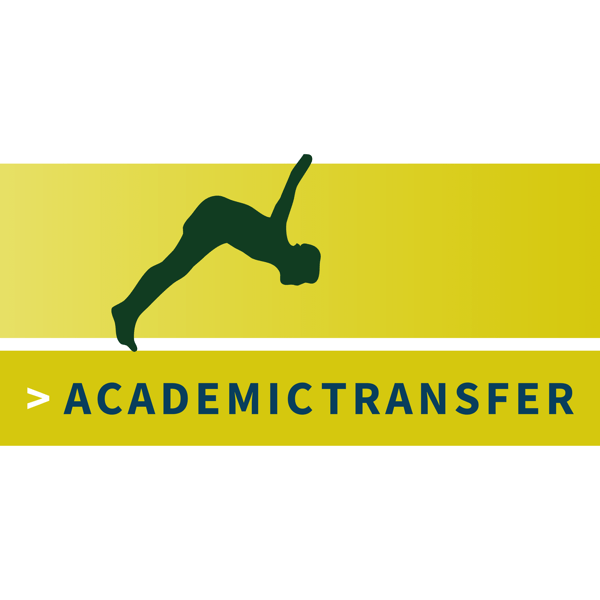
PhD Talk for AcademicTransfer: Writing academic books
This post is part of the series PhD Talk for AcademicTransfer: posts written for the Dutch academic career network AcademicTransfer, your go-to resource for all research positions in the Netherlands.
These posts are sponsored by AcademicTransfer, and tailored to those of you interested in pursuing a research position in the Netherlands.
If these posts raise your interest in working as a researcher in the Netherlands, even better – and feel free to fire away any questions you might have on this topic!
Over the years, I’ve had the opportunity to work on several academic books, both as a single author and in collaboration. I’ve written a solo-authored book (The A-Z of the PhD Trajectory), co-authored Planning and Passing Your PhD Defence with Olga Degtyareva, edited and authored two volumes on bridge load testing, and an edited volume on advanced concrete materials in bridges. These experiences have taught me not only about the mechanics of writing and publishing academic books but also when it makes sense to take on such a large project.
Writing a book is never a small task: it’s a long-term project that stretches your ability to plan, write, revise, chase down other authors, and see through the project over a long period of time. If you’re considering writing an academic book, here are some practical tips to guide you through the process:
- Decide between a monograph and an edited volume: A monograph allows you to develop a single cohesive argument or story across chapters and is usually authored by one or two scholars. It’s great if you want to build thought leadership in a specific area, share your knowledge on a particular topic, or turn your thesis into a more accessible work. Edited volumes, on the other hand, involve coordinating multiple authors and viewpoints. These may be easier to structure around a specific theme, especially if you’re organizing a network of researchers, but require a lot of coordination and perhaps reaching out to new colleagues if you need to cover areas of knowledge outside of your network.
- Choose your publisher wisely: Not all academic publishers are created equal. Consider their reputation in your field, the quality of editorial support, how well they distribute and market their books, and whether they’re open access or not. A good publisher will support your work, not just print it.
- Understand what the contract entails: Academic publishing contracts can vary widely. Will you be responsible for creating the index? (I cannot be motivated to make an index, so I need the published to take care of it.) Do you retain any rights to reuse the material in teaching or other writing? Be clear on deadlines, royalties, and responsibilities before signing. When in doubt, ask the legal area or office of research support of your university to read the contract for you.
- Plan for the long haul: Writing a book is much more like running a marathon than a sprint. You need a timeline that includes writing, revising, waiting for reviews, copyediting, layouting, and more. For the book projects that I’ve taken on, I started from a long-term planning (just written down in a Word document), then a list of milestones broken down per semester, which then translates into actionable items on a weekly basis for my weekly template.
- Accept that it may take as long as a PhD: Between getting the idea of a book and exploring publishers to getting the actual copy in your hands as much time can elapse as the years of working on a doctorate. Just like with a PhD, staying motivated over the course of months (or years) is key. Break the project down into manageable pieces, and celebrate the small wins along the way.
Writing an academic book is undoubtedly a major investment of your time and energy. So, when does it actually pay off for your career?
- Books can give you visibility and credibility: Publishing a book helps you build authority in your area of expertise. A well-written book can cement your place in your field, whether as a go-to person on a topic or someone who has shaped how others approach the subject. The A-Z of the PhD Trajectory, for instance, has become a reference for many PhD students and supervisors (especially as the book was made free for download during the pandemic), and I’ve heard from readers around the world who’ve found it useful.
- Books can lead to speaking engagements and keynotes: Books often open unexpected doors. The edited volumes I worked on in the field of bridge load testing led to an invitation to give a keynote in Australia. It was an amazing experience, and one I wouldn’t have had without the visibility that the book created. Especially in applied fields, books can showcase your work beyond academic papers and highlight your contribution to both research and practice.
- Books are valued differently across disciplines: It’s important to recognize that not all academic fields weigh book publications equally. In many humanities disciplines, a monograph is a major requirement for tenure and promotion. In contrast, in the sciences and engineering, journal articles tend to carry more weight. That said, a book can still serve as a valuable complementary asset to your CV, especially if you’re working across disciplines or involved in public scholarship.
Writing an academic book is not something to take on lightly. It’s a project that requires time, patience, and strategic thinking. But if you have something meaningful to share, either a structured overview of a topic, a novel argument, or a curated collection of expert voices, it can be a deeply rewarding process.
Before you begin, ask yourself: What do I want this book to do? Who is it for? And how does it fit into my broader academic journey? If the answers align with your goals and values, then by all means: write that book.
And if you do take the plunge, pace yourself, find your support network, and trust that, just like with any long-term project, you’ll get there one page at a time.
Have you written or edited a book? How was your experience?

